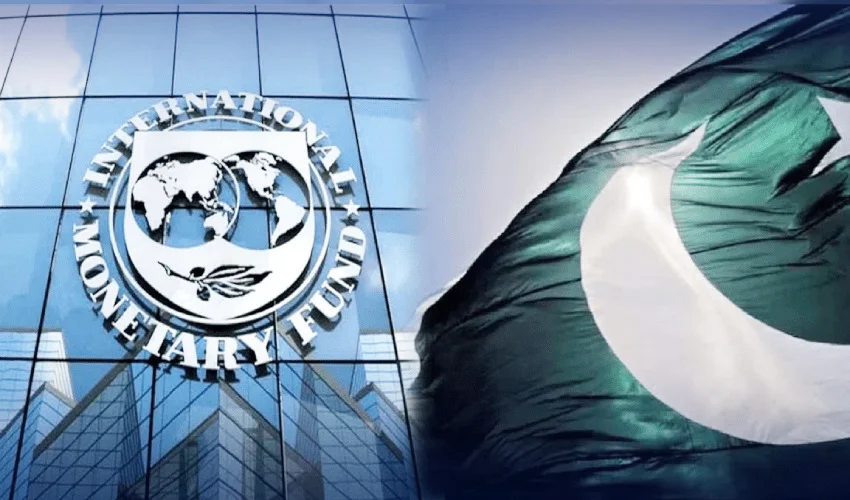- Web
- Feb 05, 2026
Fiscal tightening looms as government prepares for IMF review
-

- Web Desk Karachi
- Mar 05, 2025

ISLAMABAD: In order to secure the next $1.1 billion disbursement from the International Monetary Fund (IMF), the government may need to implement a combination of revenue measures and fiscal tightening primarily aimed at reducing development spending during the final quarter of the current fiscal year.
According to sources, the new fiscal measures, expected to come into effect from April 1, could adopt a three-pronged strategy: strict management of the Public Sector Development Programme (PSDP); improved revenue collection from sectors with lax enforcement, such as retail and real estate; and the activation of contingency measures promised under the $7 billion Extended Fund Facility (EFF) established last year to offset the revenue shortfall experienced in the first half of the fiscal year as well as in the following months, reported Dawn.
Officials project that these strategies could help bridge a fiscal gap of Rs600 billion that has accumulated over the past eight months. However, if the current approach continues, the shortfall could rise beyond Rs1 trillion by the end of the fiscal year.
While some adjustments might be made for lower-than-expected inflation and other trade realities, an official stressed the necessity of demonstrating a strong commitment to reforms through tangible results, rather than just discussions.
He noted that the Federal Board of Revenue (FBR) had previously pledged approximately Rs250 billion in new revenue from retailers, as well as significant contributions from the real estate sector.
The IMF staff mission is currently engaged in discussions with Pakistani authorities to detail how each measure would specifically contribute to filling the revenue gap. Ongoing talks will continue until March 14, following a “kick-off meeting” with a Ministry of Finance delegation led by Finance Minister Muhammad Aurangzeb.
Negotiations also included a sectoral engagement that commenced on the previous Monday.
If these discussions yield successful outcomes, Pakistan anticipates receiving the second tranche of over $1 billion from the $7 billion loan programme. The finance minister expressed confidence that Pakistan is “well positioned” for the first review of the bailout programme.
Pakistan ‘well positioned’ for first review of IMF bailout: Aurangzeb
“They are here. We will conduct two rounds of talks—first at a technical level and then policy level,” he stated in an interview with Reuters. “I think we are well positioned” for the review.
The 37-month financial arrangement was finalised in July of last year, based on parliamentary-approved budgets, and was formally signed in September 2024. The initial tranche, amounting to approximately $1.1 billion, was disbursed upfront.
Subsequent tranches, equally divided, are scheduled to be released every six months, contingent upon full adherence to quantitative performance criteria, structural benchmarks, and indicative targets.
To meet the fiscal targets set by the IMF, the government has already pledged to implement contingency revenue measures, triggered if the three-month rolling average revenue collection misses the benchmark by 1 percent.
These measures involve increasing advance income tax on industrial and commercial imports, raising withholding tax on supplies, services, and contracts by 1 percent; and a 5 percent hike in the Federal Excise Duty for aerated and sugary drinks.
A senior government official involved in preparations for the IMF review reported last week that certain technical slippages regarding deadlines had been addressed, albeit with some delays—within a few weeks or a month.
“The performance review is fundamentally based on the first half of the current fiscal year—from July 1 to December 31, 2024—and while some shortcomings may have been noted during that period, all those gaps have now been bridged,” he said.
The primary weakness identified thus far has been the revenue shortfall compared to the programme targets, which has been compensated by a larger-than-expected primary budget surplus and better than estimated revenue-to-GDP ratio, credited to improved non-tax revenues such as profits from central bank, petroleum revenues, and telecom earnings.
According to the IMF, a considerable portion (approximately 45 percent) of the fiscal adjustment anticipated under the EFF (around 3 percent of GDP) was legislated as a prior action within the federal budget for 2024-25. This included the implementation of substantial increases in electricity tariffs as part of a newly devised energy policy.
The remaining structural conditions are focused on enhancing the tax system, addressing energy issues, restructuring or privatising public sector entities, bolstering central bank operational independence, improving financial sector stability, and safeguarding the most vulnerable demographics.
Prior to the IMF mission’s visit, the lender reiterated its aim to enhance Pakistan’s notably low tax-to-GDP ratio by an additional 3 percent, while refining the fairness and efficiency of the tax system through broadening the tax base and enhancing compliance.
Three principal areas of focus include expanding direct taxes by incorporating retailers, property owners, and agricultural revenue into the tax fold; streamlining personal and corporate income taxes by reducing exemptions and simplifying rates in the general sales tax system; and broadening the coverage of the Federal Excise Duty while eliminating tariff exemptions to enhance customs revenue.




